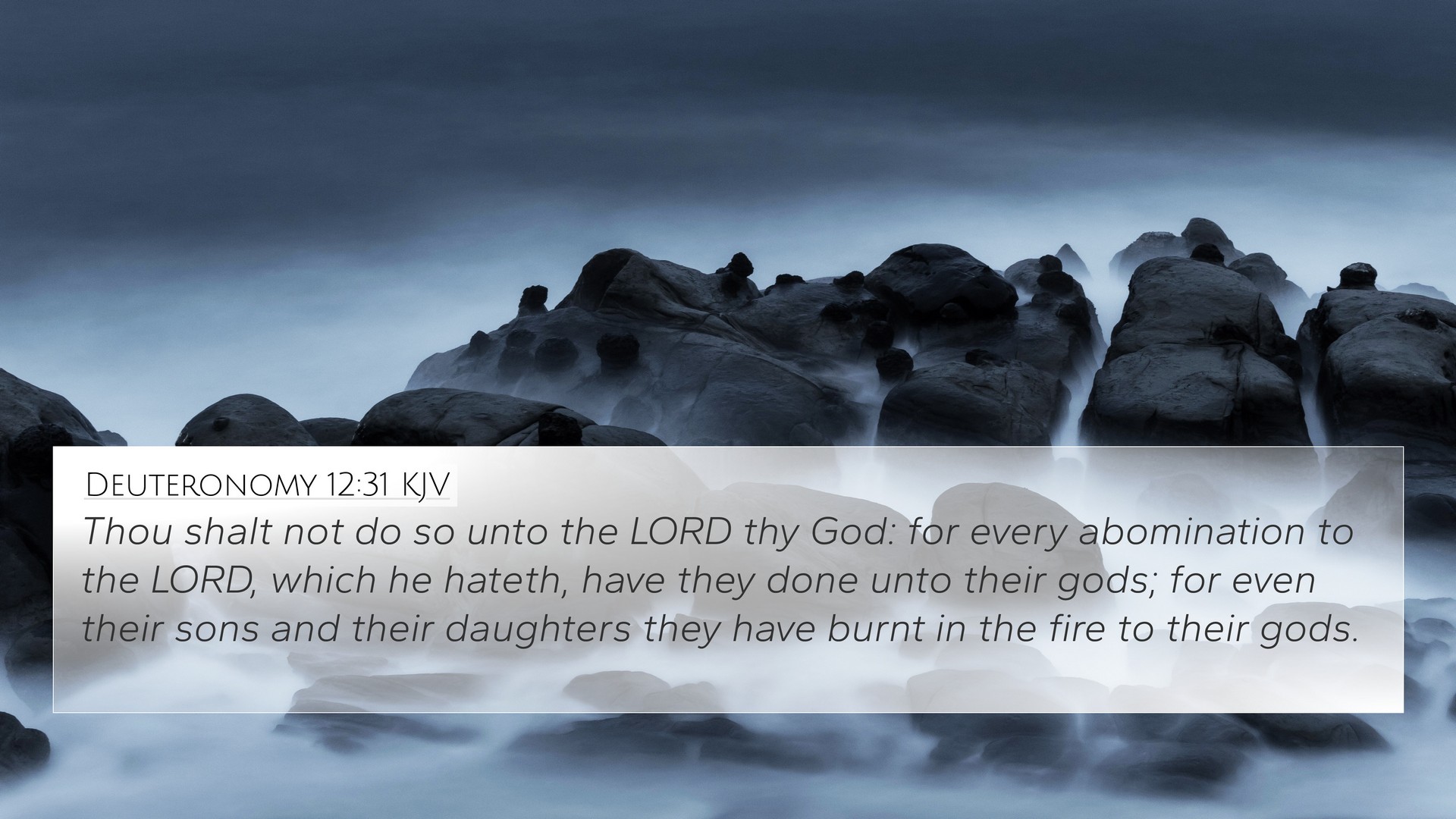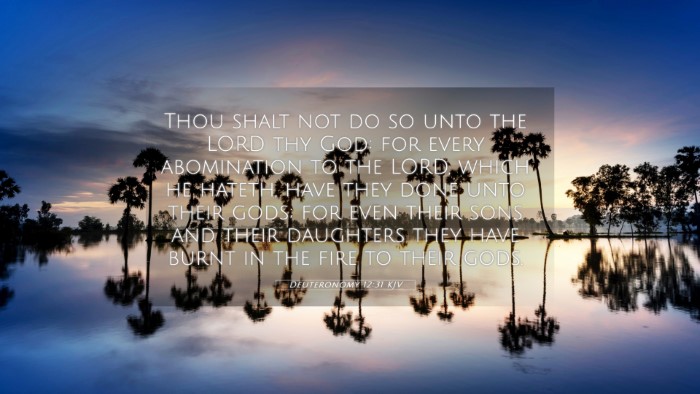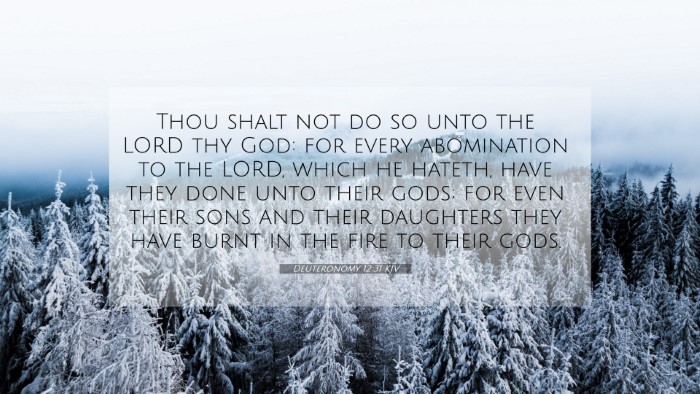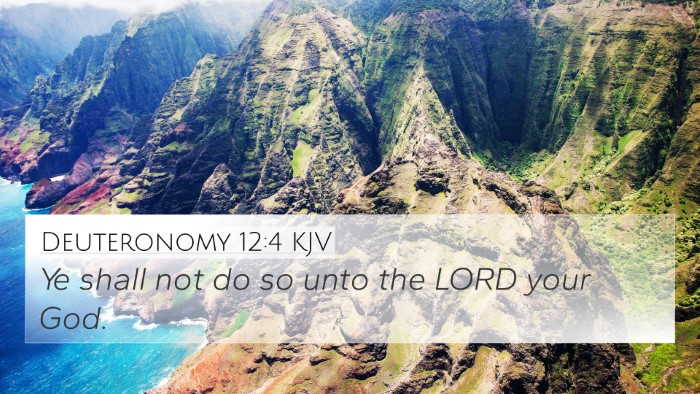This section features a detailed cross-reference designed to enrich your understanding of the Scriptures.
Below, you will find carefully selected verses that echo the themes and teachings related to Deuteronomy 12:31 KJV. Click on any image to explore detailed analyses of related Bible verses and uncover deeper theological insights.
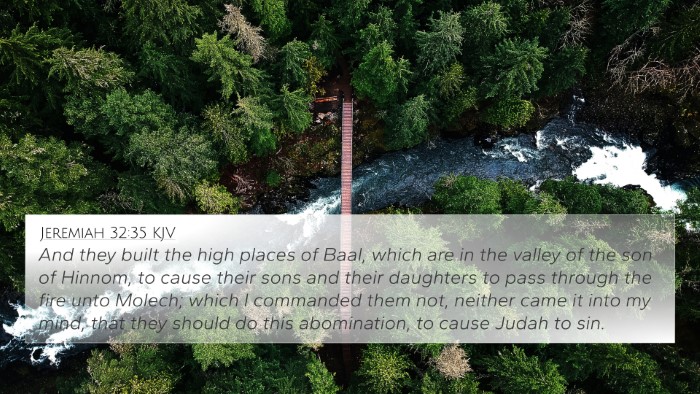 Jeremiah 32:35 (KJV) »
Jeremiah 32:35 (KJV) »
And they built the high places of Baal, which are in the valley of the son of Hinnom, to cause their sons and their daughters to pass through the fire unto Molech; which I commanded them not, neither came it into my mind, that they should do this abomination, to cause Judah to sin.
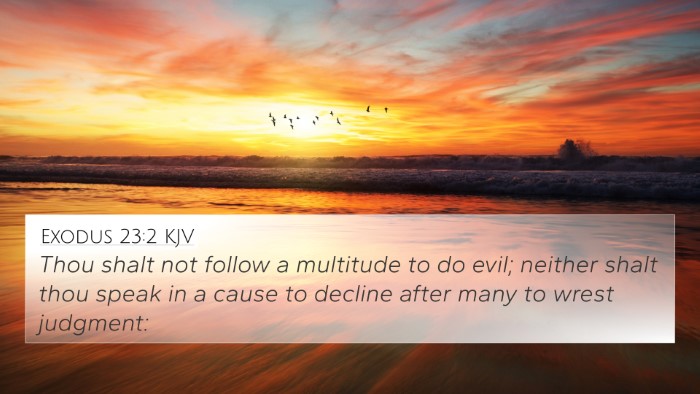 Exodus 23:2 (KJV) »
Exodus 23:2 (KJV) »
Thou shalt not follow a multitude to do evil; neither shalt thou speak in a cause to decline after many to wrest judgment:
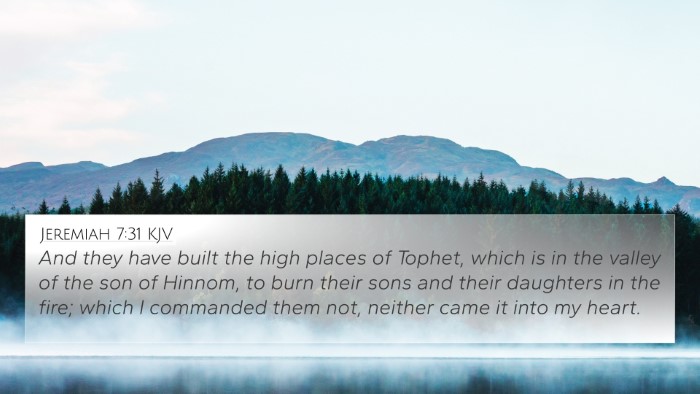 Jeremiah 7:31 (KJV) »
Jeremiah 7:31 (KJV) »
And they have built the high places of Tophet, which is in the valley of the son of Hinnom, to burn their sons and their daughters in the fire; which I commanded them not, neither came it into my heart.
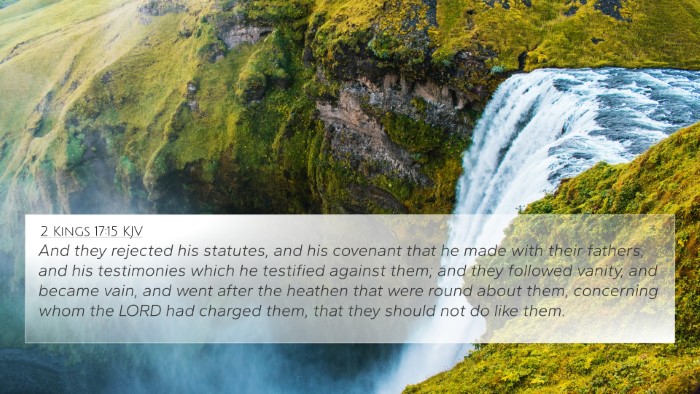 2 Kings 17:15 (KJV) »
2 Kings 17:15 (KJV) »
And they rejected his statutes, and his covenant that he made with their fathers, and his testimonies which he testified against them; and they followed vanity, and became vain, and went after the heathen that were round about them, concerning whom the LORD had charged them, that they should not do like them.
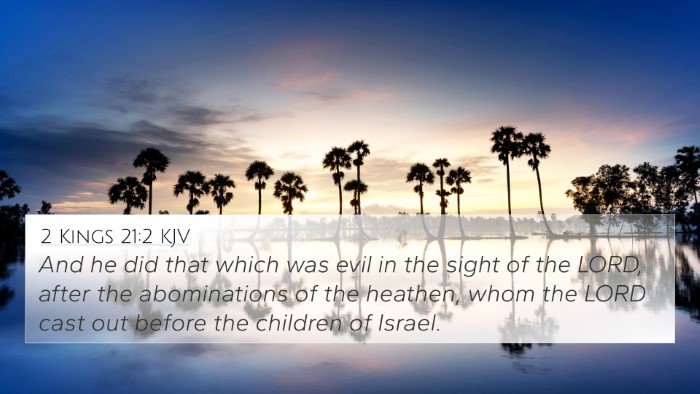 2 Kings 21:2 (KJV) »
2 Kings 21:2 (KJV) »
And he did that which was evil in the sight of the LORD, after the abominations of the heathen, whom the LORD cast out before the children of Israel.
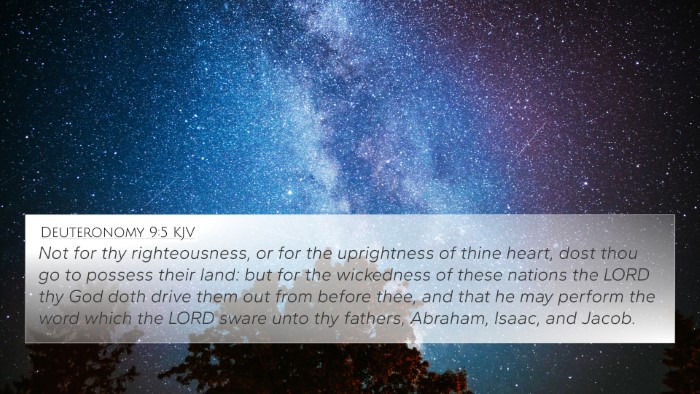 Deuteronomy 9:5 (KJV) »
Deuteronomy 9:5 (KJV) »
Not for thy righteousness, or for the uprightness of thine heart, dost thou go to possess their land: but for the wickedness of these nations the LORD thy God doth drive them out from before thee, and that he may perform the word which the LORD sware unto thy fathers, Abraham, Isaac, and Jacob.
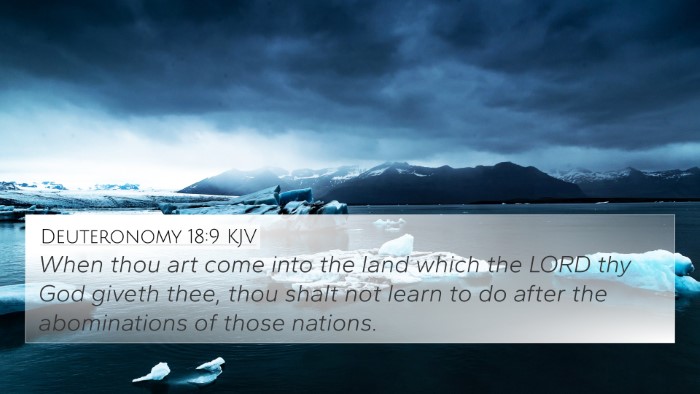 Deuteronomy 18:9 (KJV) »
Deuteronomy 18:9 (KJV) »
When thou art come into the land which the LORD thy God giveth thee, thou shalt not learn to do after the abominations of those nations.
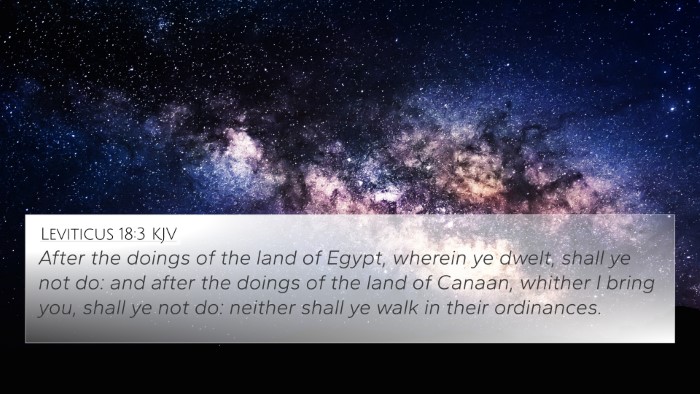 Leviticus 18:3 (KJV) »
Leviticus 18:3 (KJV) »
After the doings of the land of Egypt, wherein ye dwelt, shall ye not do: and after the doings of the land of Canaan, whither I bring you, shall ye not do: neither shall ye walk in their ordinances.
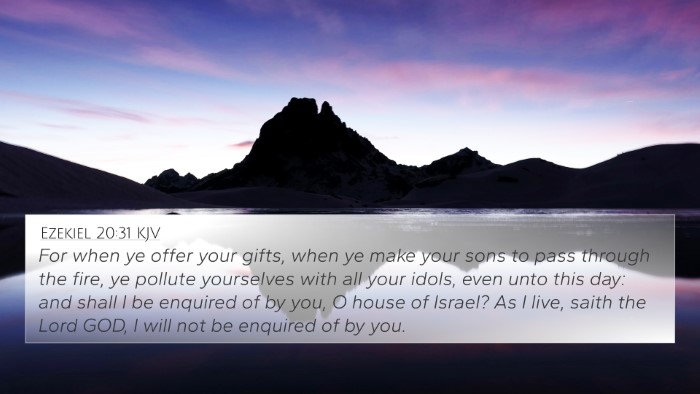 Ezekiel 20:31 (KJV) »
Ezekiel 20:31 (KJV) »
For when ye offer your gifts, when ye make your sons to pass through the fire, ye pollute yourselves with all your idols, even unto this day: and shall I be enquired of by you, O house of Israel? As I live, saith the Lord GOD, I will not be enquired of by you.
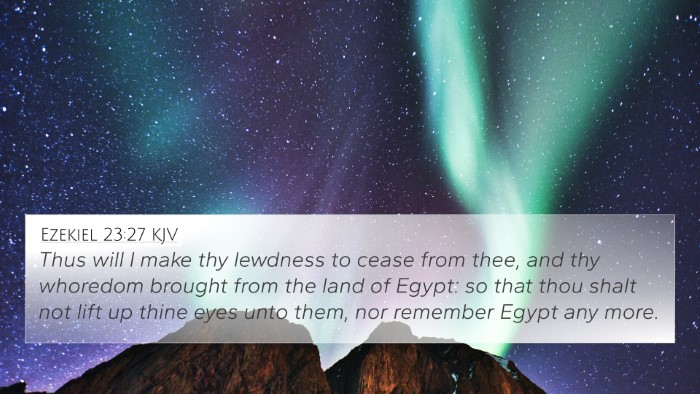 Ezekiel 23:27 (KJV) »
Ezekiel 23:27 (KJV) »
Thus will I make thy lewdness to cease from thee, and thy whoredom brought from the land of Egypt: so that thou shalt not lift up thine eyes unto them, nor remember Egypt any more.
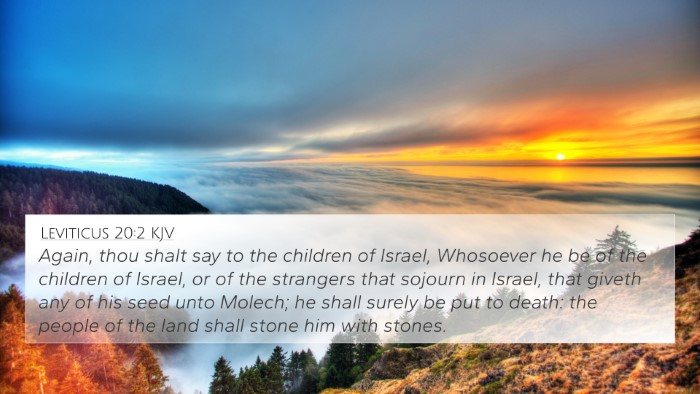 Leviticus 20:2 (KJV) »
Leviticus 20:2 (KJV) »
Again, thou shalt say to the children of Israel, Whosoever he be of the children of Israel, or of the strangers that sojourn in Israel, that giveth any of his seed unto Molech; he shall surely be put to death: the people of the land shall stone him with stones.
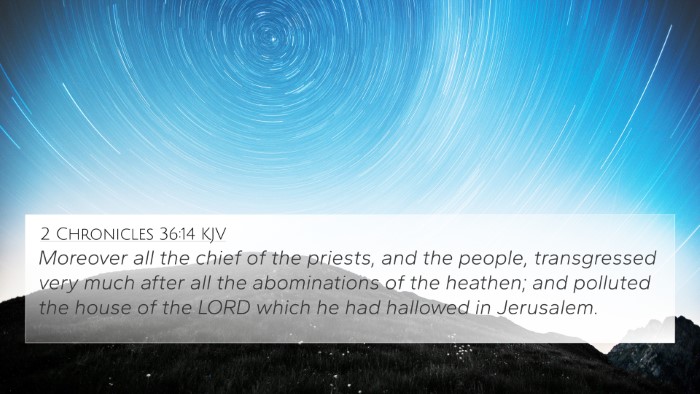 2 Chronicles 36:14 (KJV) »
2 Chronicles 36:14 (KJV) »
Moreover all the chief of the priests, and the people, transgressed very much after all the abominations of the heathen; and polluted the house of the LORD which he had hallowed in Jerusalem.
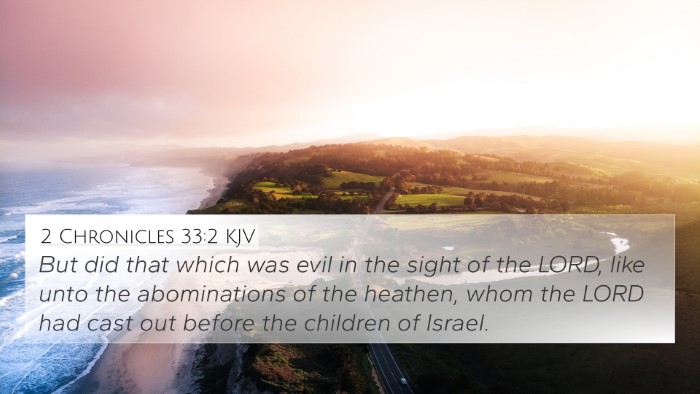 2 Chronicles 33:2 (KJV) »
2 Chronicles 33:2 (KJV) »
But did that which was evil in the sight of the LORD, like unto the abominations of the heathen, whom the LORD had cast out before the children of Israel.
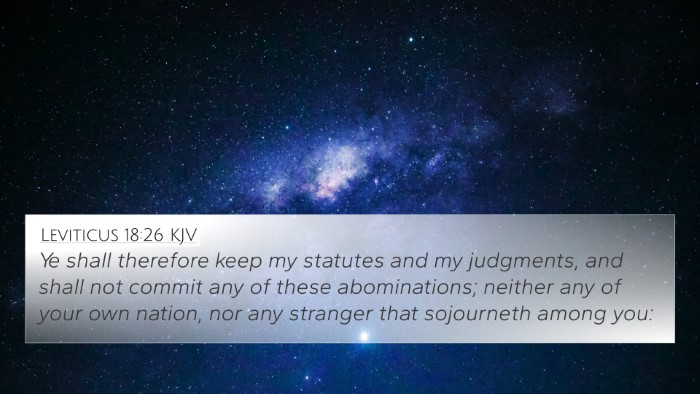 Leviticus 18:26 (KJV) »
Leviticus 18:26 (KJV) »
Ye shall therefore keep my statutes and my judgments, and shall not commit any of these abominations; neither any of your own nation, nor any stranger that sojourneth among you:
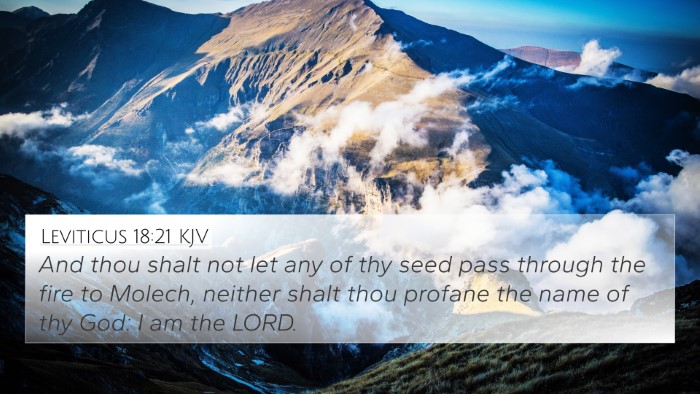 Leviticus 18:21 (KJV) »
Leviticus 18:21 (KJV) »
And thou shalt not let any of thy seed pass through the fire to Molech, neither shalt thou profane the name of thy God: I am the LORD.
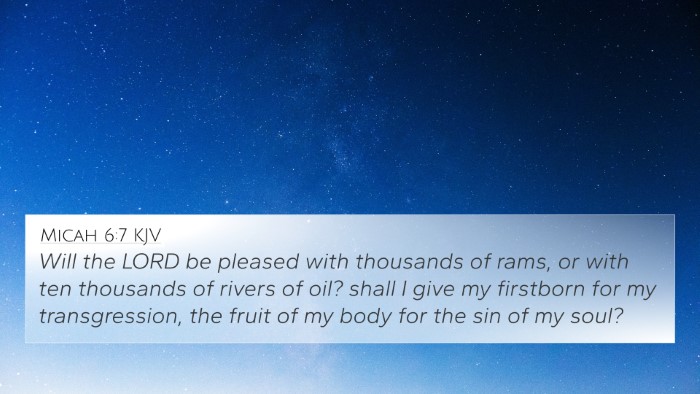 Micah 6:7 (KJV) »
Micah 6:7 (KJV) »
Will the LORD be pleased with thousands of rams, or with ten thousands of rivers of oil? shall I give my firstborn for my transgression, the fruit of my body for the sin of my soul?
